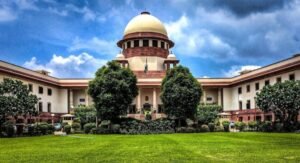The Supreme Court has deemed an observation made by the Odisha State Consumer Commission as “unwarranted,” which implies that Apple does not have the obligation to track stolen iPhones using unique identity numbers.
Court’s Directive
 Justices Vikram Nath and Satish Chandra Sharma’s bench granted Apple’s plea, expressing concern that such directives could inadvertently transform the company into a law enforcement entity for recovering lost products. The court ordered the removal of the mentioned paragraph from the State Commission’s November 26, 2020 order.
Justices Vikram Nath and Satish Chandra Sharma’s bench granted Apple’s plea, expressing concern that such directives could inadvertently transform the company into a law enforcement entity for recovering lost products. The court ordered the removal of the mentioned paragraph from the State Commission’s November 26, 2020 order.
Backgrounder
For context, The complainant purchased an iPhone along with insurance covering theft losses. After the phone was stolen, he filed a police report (FIR) and notified Apple India.
When the complainant received no response from Apple, he filed a case in the District Consumer Forum, which ruled in his favor, directing Apple to pay Rs 40,000 for the phone and Rs 5,000 for litigation costs.
Apple appealed this decision to the State Commission and National Consumer Dispute Redressal Commission (NCDRC), but both appeals were dismissed. Finally, Apple filed a Special Leave Petition (SLP) with the Supreme Court after the NCDRC rejected their revision application.
Apple’s Response
 Counsel for Apple India Private Ltd stated that the complainant has been adequately compensated, but the company remains concerned about the paragraph in the state commission’s order.
Counsel for Apple India Private Ltd stated that the complainant has been adequately compensated, but the company remains concerned about the paragraph in the state commission’s order.
The commission asserted that it was the company’s duty to trace the stolen mobile device and criticized its failure to do so promptly upon receiving relevant documents from the complainant, citing it as a deficiency of service.
And Thus, the highest court directed the elimination of the disputed paragraph from the State Commission’s directive, outlining the boundaries of corporate responsibilities in similar circumstances.










